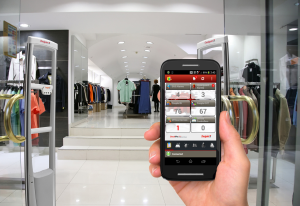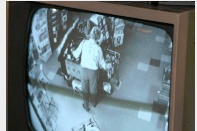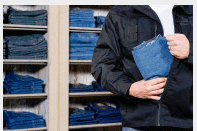By now the holiday season has been in full force for a few weeks, and the stress your management team, employees and security personnel are feeling is a bit overwhelming. Shoplifters during the holiday season are abundant, and police and retailers try to be more vigilant and proactive by implementing security measures during this time than at any other time of the year. Follow the links below for more information about this and other topics.
Police step up efforts for holiday crime
As the holiday season gets under way, local police are gearing up for the all-too-predictable spike in property crime.
Hanford police Capt. Pat Crowe said officers will be stepping up their game over the next few weeks to deter vehicle burglaries, robberies and other crimes typical of this time of year.
“Every [patrol] shift was tasked with coming up with their own holiday project,” Crowe said.
Crowe said those projects include probation and parole sweeps focusing on individuals with known histories of gang activity, drug-related offenses and property crimes. Foot patrols and motorcycle units will also increase their presence at the Hanford Mall and other major shopping centers.
“Our main focus is to be visible and hopefully deter criminals from doing what they’re going to do,” Crowe said.
Lemoore Police Chief Darrell Smith said each of his department’s patrol shifts also devised a plan to tackle holiday crime. The result was a number of special operations that will unfold through New Year’s Eve.
Police offer tips to stay safe during holidays
If you’re tempted to share your holiday plans or photographs of Christmas loot on social media, local law enforcement officials want you to think twice.
“We live in an age where people put so much information out there about themselves,” said Cindy Kozerow, crime prevention specialist with the Lynchburg Police Department.
“Do not announce on Facebook, ‘Hey, we’re going to grandma’s for the holidays,’ because what that says is ‘Hey, my house is empty, so come and steal my stuff.’”
She explained how the holidays present a unique opportunity for thieves looking to capitalize on people’s good will and sense of safety in their own homes.
Checking in at stores on social media pages or opening window curtains at night to show off decorations lets potential thieves know when your home is empty, and gives them a glimpse of goods stashed under your Christmas tree.
‘Shoplifting Season’ for local businesses
Rogue River, Ore — The holiday shopping season can mean trouble for local businesses as big crowds come in but some say they’re sick and tired of getting ripped off. Sometimes it’s as simple as a Facebook post.
In Rogue River the police are working with one local business to make sure their products stay on the shelves and don’t fall into the hands of thieves.
“We’re a small store, and it really hurts us,” said Justin Norris.
At Rogue River Pharmacy and variety store shoplifting is something assistant manager Justin Norris has to deal with far too often.
“Lately we’ve had a problem with people from out of town coming in and shoplifting,” said Norris.
Rogue River police are looking to put an end to it by posting pictures online of suspected shoplifters and suspicious persons, one of whom confronted a uniformed police officer before leaving empty handed Tuesday.








